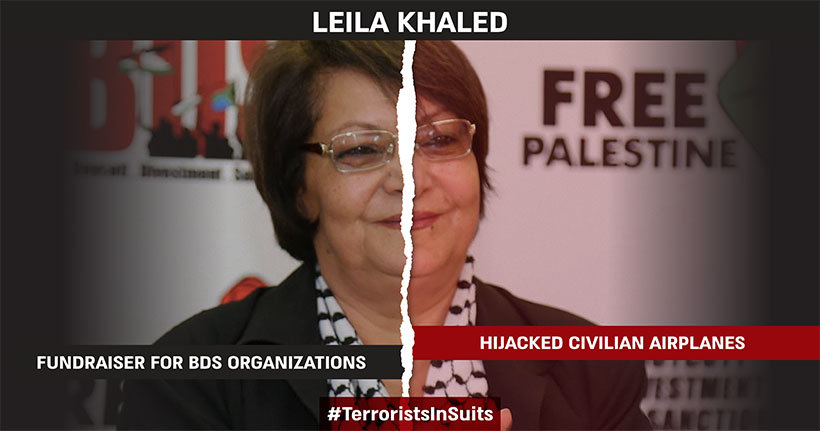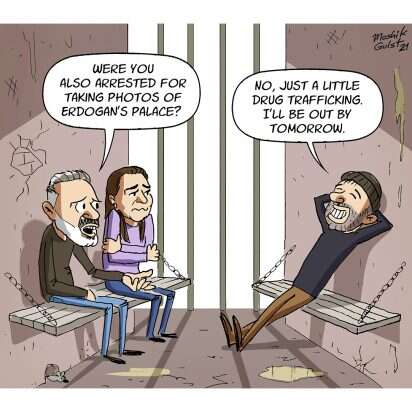Seth Frantzman: Israel at the Dubai Air Show symbolizes new Middle East
This growing regional partnering has ramifications that go beyond specific defense deals or even joint training. It’s about a consensus that views stability and moderation as key pillars of foreign policy.
This is in contrast to the policy of countries like Iran and Turkey that prefer confrontation in the region. That is why wherever Iran has a role there is poverty, chaos and civil conflict. In Lebanon and Iraq, people – including Iraq’s prime minister – are targeted for assassination by Iran’s proxies.
Meanwhile, Ankara has played an aggressive and threatening role in places like Syria and Libya, often heating up conflicts, rather than turning down the tensions.
However, the emerging consensus between Israel and the UAE is not all-inclusive. The US, for instance, ostensibly opposes the UAE’s outreach to Damascus.
For Israel, hopefully, Syria will dial back the Iranian role there. Reports say that the Assad regime may have been nonplussed by an IRGC-backed attack on the US Tanf garrison.
That could also be a talking point in regional media. What is clear is that there are a lot more meetings coming between Israel, Egypt, Jordan, Bahrain and the UAE and their partners in Asia and the West.
While Israel’s role at the Dubai Air Show can be seen through specific deals and companies – such as the participation of UVision, an innovative company that makes loitering munitions – the greater symbol is that Israel is now in the room with big players in the region.
In the past, Israel often felt isolated or even bifurcated from the region, not even included in US Central Command, for instance. Now, the inclusion of Israel in the room alongside others in a multilateral framework provides a space in which to build upon the Abraham Accords in a way that was only a dream a few years ago.
Defense Minister Gantz to visit Morocco next week
Defense Minister Benny Gantz will make an official visit next week to Morocco, where he is expected to sign a memorandum of understanding with the North African kingdom.Israel, UAE begin talks on free-trade agreement
Gantz will meet with his Moroccan counterpart, Abdellatif Loudiyi, and will sign an MoU that will outline defense cooperation between the two countries.
According to foreign reports, Gantz and Loudiyi will sign defense cooperation deals that include plans to develop a domestic industry to produce loitering munitions, also known as suicide drones.
According to Defense News and the French publication Africa Intelligence, the two countries are currently working on the development of a project to manufacture the drones to strengthen Morocco’s air power.
The report said that defense giant Israel Aerospace Industries (IAI) subsidiary BlueBird Aerosystems has been negotiating with Moroccan teams for several months about developing a business incubator to manufacture such drones.
Israel and the UAE began talks for establishing a free-trade agreement when Israel’s Economy and Industry minister, Orna Barbivai, met her Emirati colleague, Abdulla bin Touq Al Mari, to launch discussions on Monday night for a deal that will significantly strengthen trade between the two countries.
Since the Abraham Accords were signed in September 2020 normalizing relations between Israel and the UAE, trade between the two countries has increased dramatically. While trade between the two was about $125 million in 2020, that figure reached nearly $500m. in the first seven months of 2021.
The Foreign Trade Administration anticipates that these figures can continue to grow at a rapid pace and reach much higher levels.
Some have estimated that trade will exceed $1 billion this year and reach $3b. within three years. That does not include direct foreign investment between the two countries, which will likely reach tens of billions of dollars.
“This meeting opens the door to the many meetings on the way, and there is no doubt that this agreement will help significantly strengthen trade between the countries, remove barriers, and expand economic cooperation,” Barbivai said. “I hope that we will be able to realize the enormous potential inherent in the friendship between Israel and the United Arab Emirates.”
Ohad Cohen, director of the Foreign Trade Administration who is leading Israel’s negotiators, said, “We intend to conclude a meaningful and comprehensive agreement with our fellow colleagues, which will include, among other things, issues relating to trade in goods including regulation and regulation, customs, trade in services, government procurement, e-commerce and the preservation of intellectual property rights.”
History in the making! Mazal Tov and Mabrouk Your Excellency. https://t.co/dlhHo8XA13
— Arsen Ostrovsky (@Ostrov_A) November 16, 2021



















































